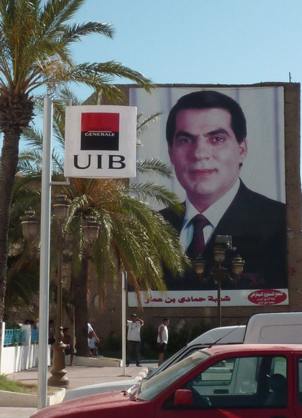|
Tunisia Economy - Development | Society Ben Ali clan owes Tunisia banks €1.3bn
Tunisian Central Bank chief Mustapha Kamel Nabli at a press conference in Tunis said the bank had looked into the former ruling clan's business operations, discovering that a total of 182 companies owed by the ex-President, his wife Leila Trabelsi and their families had funded much of their businesses on Tunisian credits.
Meanwhile, Tunisia struggles to recover its economy after the January riots and revolution disrupted businesses, tourism and caused great material damages. The Central Bank chief however spoke of several "positive indicators", especially in the financial sector, in the Tunisian economy. He urged Tunisian workers and businesses to "return to a normal pattern of work" to assure that international market shares are not lost and that competitiveness is maintained. Positive trends are already noted in the tourism sector, with European charter companies returning to Tunisia in the beginning of March. Also the International Monetary Fund (IMF) this week was optimistic regarding a quick economic recovery in Tunisia. "Tunisian authorities themselves said they expect a growth of 2 to 3 percent in their economy this year. In our point of view, this seems a very reasonable forecast," IMF analyst Masood Ahmed said. By staff writer © afrol News - Create an e-mail alert for Tunisia news - Create an e-mail alert for Economy - Development news - Create an e-mail alert for Society news
On the Afrol News front page now
|
front page
| news
| countries
| archive
| currencies
| news alerts login
| about afrol News
| contact
| advertise
| español
©
afrol News.
Reproducing or buying afrol News' articles.
You can contact us at mail@afrol.com









